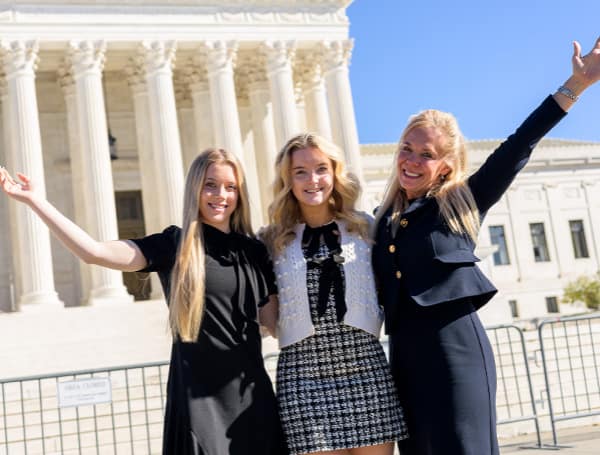Michelle Cochran (Source: NCLA) By: Katelynn Richardson, DCNF. The Securities and Exchange Commission (SEC) dropped its more than seven-year-long
The Securities and Exchange Commission (SEC) dropped its more than seven-year-long case against Texas accountant Michelle Cochran after her April Supreme Court victory against the agency.
Cochran’s case began in 2016 when the SEC brought charges against her for allegedly aiding and abetting in violations stemming from incomplete accounting paperwork, according to court documents.
An administrative law judge (AJL) banned her from practicing as an accountant for five years and imposed a $22,500 fine in 2017.
In the news: Texas Man Arrested After Traveling To Florida For Sex With 13-Year-Old Girl
The Supreme Court held unanimously in April that individuals like Cochran who are facing SEC complaints can dispute their constitutionality in federal court before going through the agency’s internal adjudication process. Before Cochran was able to revive her constitutional challenge, the agency dropped the case altogether in June — along with more than 40 other pending cases, according to a press release.
Under a stipulation the SEC agreed to Tuesday, it will not bring future proceedings against Cochran. The New Civil Liberties Alliance (NCLA), the law firm representing Cochran, also agreed to dismiss its case against the agency.
While a win for Cochran, NCLA Senior Litigation Counsel Peggy Little told the Daily Caller News Foundation that the SEC’s dismissal of the cases shows the agency “does not want to face anyone in court.”
The SEC pointed to a “control deficiency” enabling enforcement staff to access adjudication documents as reason for its June 2 decision to dismiss 42 open cases. But Little said this is an “obvious pretext” because the agency only dismissed open cases.
“If the SEC was interested in whether people had compromised proceedings, they would dismiss all of the cases in which the control deficiency occurs,” she said. “But they did not. They only dismissed open cases, and those are cases where people are going to court on the constitutional issues and also get discovery on the control deficiency. So I think they have used that as an excuse to stop people from going into court.”
In the news: California Gov. Newsom Signs Bill Mandating $20 Hour Min Wage For Fast Food Workers
Those with closed or settled cases are getting “no relief” from their adjudicator being compromised by the sharing of files, Little told the DCNF.
“The reason SEC gave for its mass dismissal of every open case affected by this disturbing internal data breach is an obvious pretext,” NCLA Senior Litigation Counsel Peggy Little said in a statement. “SEC is manipulating court dockets to avoid judicial review of its rigged agency adjudication scheme because it is afraid of what a court will discover behind the curtain—namely, biased trials that deny targets their rights to due process, and access to a real court with a jury, in a separate branch of government, as promised in our Constitution.”
NCLA has a pending Freedom of Information Act lawsuit against the SEC to obtain more information about the breach, Little told the DCNF.
Cochran had argued the in-house administrative law judges (ALJs) who oversee agency proceedings to enforce statutory violations are insulated from removal and insufficiently accountable to the President. Justice Elena Kagan wrote in the Supreme Court’s opinion that the “ordinary statutory review scheme does not preclude a district court from entertaining these extraordinary claims.”
Android Users, Click To Download The Free Press App And Never Miss A Story. Follow Us On Facebook and Twitter. Signup for our free newsletter.
We can’t do this without your help; visit our GiveSendGo page and donate any dollar amount; every penny helps

